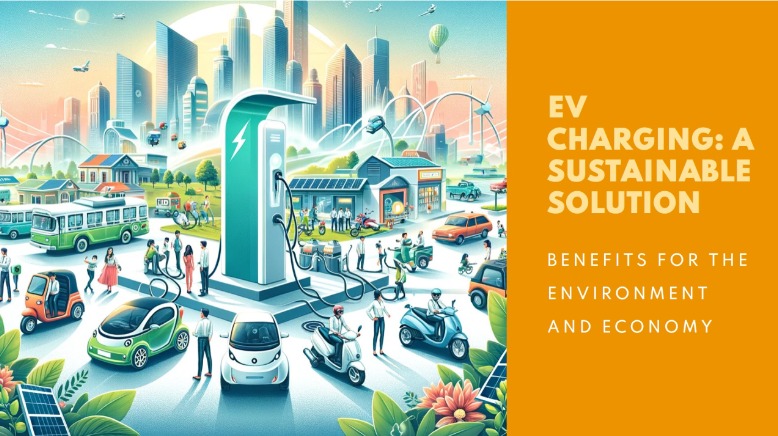The Environmental and Economic Advantages of Electric Vehicles (EVs)

Electric vehicles (EVs) are transforming the automotive industry with their zero-emission performance and sustainable energy usage. As a cleaner alternative to traditional internal combustion engine vehicles (ICEVs), EVs offer a promising solution to environmental challenges while driving innovation and economic growth.
- Reduced Greenhouse Gas Emissions: EVs produce zero tailpipe emissions, meaning they don’t emit pollutants like carbon dioxide (CO2), nitrogen oxides (NOx), and particulate matter (PM) during operation. The environmental impact of an EV depends on how the electricity used to charge it is generated. If the electricity comes from renewable sources like solar or wind power, the overall emissions footprint of EVs can be significantly lower compared to ICEVs.
- Energy Efficiency: EVs are typically more energy-efficient than ICEVs because electric motors convert a higher percentage of the energy stored in batteries into driving power compared to the energy converted by internal combustion engines. This efficiency translates to less energy wasted during operation and a reduced overall demand for energy resources.
- Reduced Dependence on Fossil Fuels: EVs can be powered by a variety of energy sources, including renewable energy such as solar, wind, hydroelectric, and geothermal power. By diversifying the sources of energy used for transportation, EVs can reduce dependence on finite fossil fuels and contribute to energy security.
- Potential for Grid Integration and Energy Storage: EVs can serve as mobile energy storage devices, especially when equipped with bidirectional charging capabilities. This means they can store energy when electricity demand is low and discharge it back to the grid during peak demand periods. This capability helps balance the grid, integrate more renewable energy sources, and reduce the need for additional grid infrastructure.
- Reduced Noise Pollution: Electric motors are quieter than internal combustion engines, resulting in less noise pollution in urban areas. This can contribute to improved quality of life for residents and wildlife.
- Lifecycle Emissions: While the manufacturing process of EVs may produce emissions, studies suggest that over the vehicle’s entire lifecycle—including manufacturing, operation, and disposal—EVs typically have lower emissions compared to ICEVs, especially as the electricity grid becomes cleaner and more renewable energy sources are used.
Transitioning to EVs is not only beneficial for the environment but also offers economic advantages:
- Lower Operating Costs: EVs have lower fueling and maintenance costs compared to internal combustion engine vehicles (ICEVs). Electricity is generally cheaper than gasoline or diesel fuel on a per-mile basis, and EVs have fewer moving parts, resulting in reduced maintenance requirements and lower servicing costs over the vehicle’s lifetime.
- Energy Security: EVs can be powered by domestically produced electricity, reducing dependence on imported oil and enhancing energy security. This can mitigate the economic and geopolitical risks associated with fluctuations in global oil prices and supply disruptions.
- Technological Innovation: The transition to EVs is driving technological innovation in the automotive industry, leading to advancements in battery technology, electric drivetrains, and charging infrastructure. This innovation has the potential to spur economic growth, create new job opportunities, and position countries at the forefront of the clean energy transition.
- Enhanced Driving Experience: EVs offer smoother acceleration, quieter operation, and lower vibration compared to ICEVs. Additionally, EVs often feature advanced technologies such as regenerative braking, instant torque, and smart connectivity, enhancing the overall driving experience for consumers.
- Regulatory Incentives: Many governments around the world are implementing policies and incentives to promote the adoption of EVs, such as tax credits, rebates, and subsidies for purchasing EVs, as well as regulations aimed at reducing emissions from the transportation sector.
Overall, transitioning to EVs offers a multitude of benefits beyond environmental considerations, including economic, social, and technological advantages. While there are challenges to overcome, such as the need for expanded charging infrastructure and improvements in battery technology, the long-term benefits of electrifying the transportation sector are compelling.
